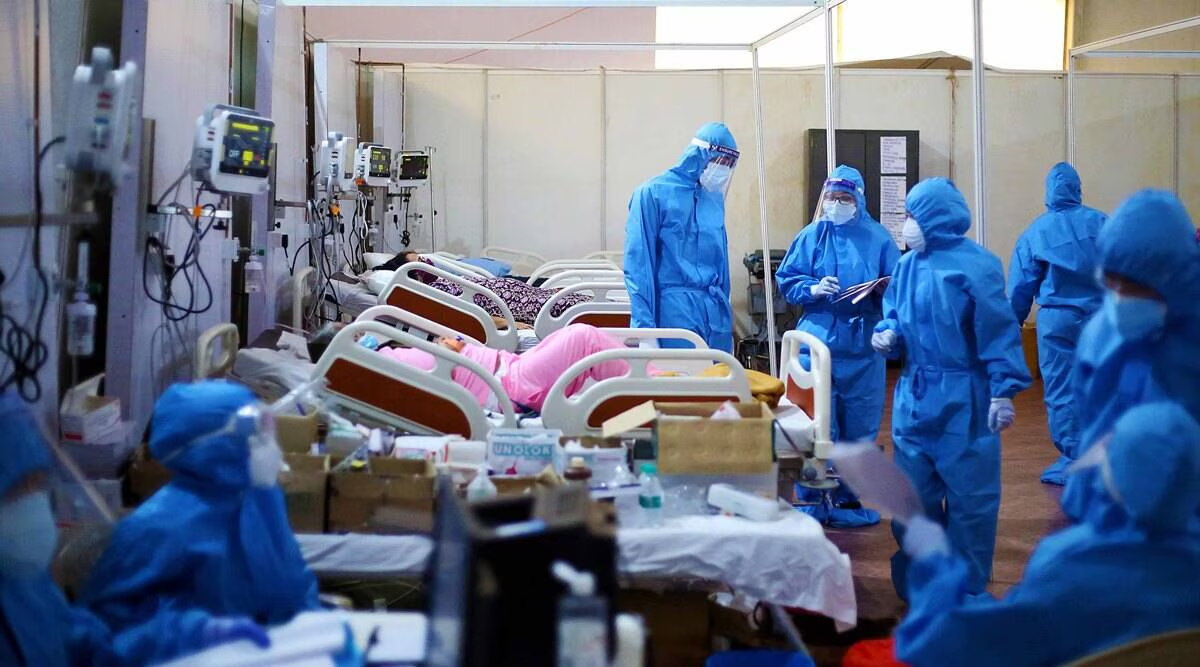New Delhi, 08 June 2025: India is once again witnessing a concerning rise in Covid-19 cases, with active infections crossing the 5,000-mark as per the latest data released by the Ministry of Health and Family Welfare. The sudden surge has prompted several states and union territories to swing into action by issuing fresh advisories, strengthening surveillance, and urging citizens to follow precautionary measures. Experts are closely monitoring the situation, especially with the emergence of newer sub-variants that are reportedly more transmissible. Although the severity of infections remains largely mild, health officials have cautioned that laxity in public behaviour could trigger a wider outbreak if immediate preventive steps are not taken.
Rising Case Load: A Cause for Concern
According to government data, the active caseload has jumped significantly in the past two weeks, with Maharashtra, Kerala, Delhi, Tamil Nadu, and Karnataka among the worst-hit states. The Indian Council of Medical Research (ICMR) has confirmed that the dominant circulating variants belong to the Omicron family, with some mutations showing signs of immune evasion. Although hospitalisation rates are low, doctors are advising elderly citizens, immunocompromised patients, and those with comorbidities to exercise caution and consult a physician if any symptoms appear.
State Governments Swing Into Action
Following the alarming increase in daily positive cases, state health departments have begun releasing fresh advisories. Maharashtra has reactivated district-level Covid monitoring cells and urged citizens to wear masks in crowded indoor places. Kerala’s health department has advised regular hand hygiene, masking in public transport, and isolation for symptomatic individuals. In Delhi, hospitals have been asked to remain on alert and ramp up testing facilities. Tamil Nadu has started genome sequencing for samples testing positive with high viral load to track any emergence of a new variant. States like Gujarat, Andhra Pradesh, and West Bengal have also increased testing and contact tracing efforts.
Symptoms and Transmission Trends
Doctors say that while the dominant Covid-19 symptoms currently include mild fever, sore throat, nasal congestion, and fatigue, patients must not ignore early signs. In some reported cases, gastrointestinal symptoms and mild breathing discomfort have also been observed. The virus is reportedly spreading faster among schoolchildren, office-goers, and in closed-door gatherings—once again raising concerns about super-spreader events. Health officials reiterate that although vaccinations may not fully prevent infection, they significantly reduce the risk of severe illness, hospitalisation, and death.
Central Government Issues Nationwide Guidelines
In light of the rising numbers, the central government has advised all states to maintain adequate stock of medicines, oxygen, PPE kits, and essential medical infrastructure. Hospitals have been asked to conduct mock drills to ensure readiness for potential surges. Union Health Secretary has written to state health secretaries urging them to intensify surveillance, submit daily case reports, and increase awareness about Covid-appropriate behaviour. Testing through RT-PCR is being ramped up in high-risk zones and travellers from international hotspots are being screened more thoroughly.
Public Advisory: What You Must Do
Health authorities continue to urge the public not to panic but remain cautious. Citizens are advised to wear face masks in public spaces, especially in hospitals, crowded indoor settings, and public transport. Regular hand sanitisation, maintaining physical distancing, and self-isolation upon experiencing symptoms are key to curbing the spread. People with flu-like symptoms should avoid going to work or school and consult a doctor immediately. Vaccination boosters are being encouraged, especially for the elderly and those with chronic illnesses. Mass gatherings are being discouraged, and people are being advised to avoid unnecessary travel unless urgent.
Stay Alert, Not Alarmed
As India crosses the 5,000 active case mark, the threat of a full-fledged wave looms unless proactive steps are taken by both the government and citizens. While the variants currently in circulation are not as lethal as earlier ones, their high transmissibility can put immense pressure on healthcare systems if left unchecked. By following basic precautions, getting timely medical attention, and supporting public health measures, India can once again manage the Covid threat effectively without widespread disruption. Stay informed, stay protected.







